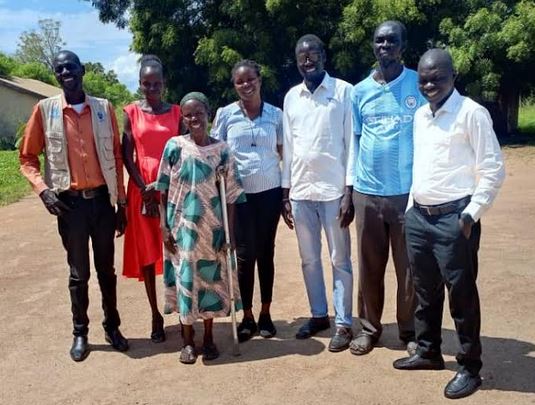The Greater Equatoria Land Alliance has decried the lack of awareness and a policy to regulate the usage of the land in the communities in the Eastern Equatoria State capital, Torit.
The statement was made during a two-day training that concluded in Torit on Tuesday for paralegals on legal basic knowledge, human rights, and handling land-related cases. The training, organized by the Greater Equatoria Land Alliance with support from the Norwegian People’s Aid (NPA), was to identify land issues in the Greater Equatoria Region.
Morish John, Secretary General for Greater Equatoria Land Alliance, said the Land Act of 2009 does not specify how land can be regulated and used. He said more than 80 percent of community issues in the Equatoria region arise from land disputes.
“More than 80 percent of the cases are land-related issues because people are not being made aware about how to manage their land. Secondly, we have issues with the implementation of the laws themselves and also the issues of lack of policies that happen when it comes to land issues,” he stated. “It is unfortunate that when the Comprehensive Peace Agreement was signed in 2005, and after the referendum, the government rushed to use the Land Act, 2009 which does not give a clear policy on the regulation and the usage of land.”
John added: “Most of the conflicts happening are around land issues and we even have some examples where people have been killed.”
For her part, Gale Christine, a paralegal in Torit, admitted that land-related conflicts are alarming in Greater Equatoria and accused land officials of allocating plots to more than one individual.
“The issues related to land are high because people are now aware that even in a plot that you bought, you find that two or more people are fighting over the same piece of land and this is the most common issue here in Torit,” she said. “Sometimes, open spaces meant for school and playing grounds are illegally occupied by squatters and the land issue is alarming in Torit Town.”
Another paralegal, Ewot Felix, urged citizens in Greater Equatoria to report land-related conflicts to the relevant authorities, cautioned citizens against land disputes, and urged them to resort to legal means of solving disputes rather than taking law into their own hands.
“My message to the people is that they should use the law to resolve land and other problems,” she stressed.
The Greater Equatoria Land Alliance resolved to form paralegal committees across the state with tasks and roles to identify and report land-related issues in the region.




